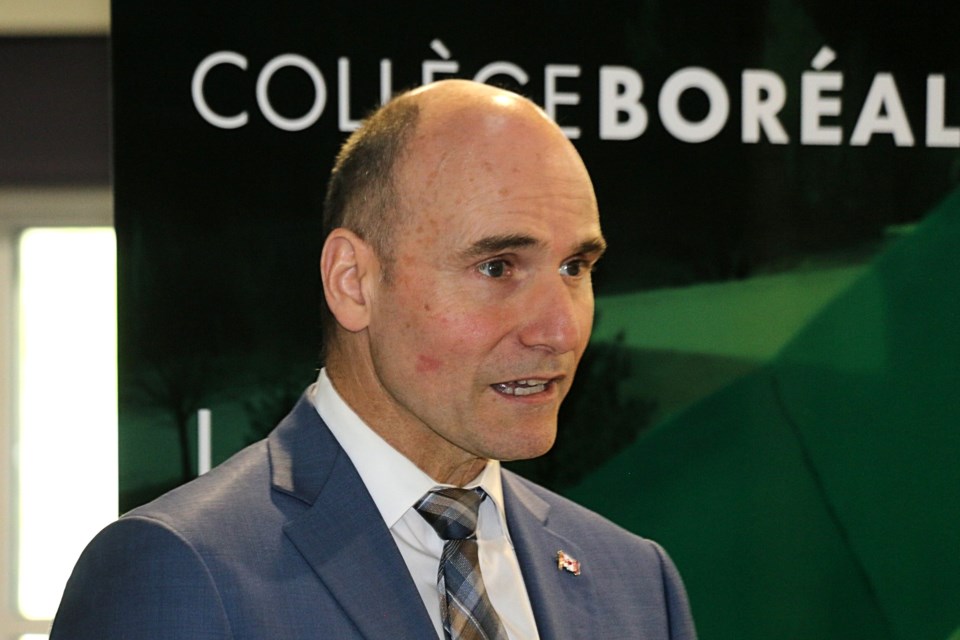The federal government is spending more money on bilingual health care education programs to ensure that every person can have access to health services in the official language of their choice.
Federal health minister Jean-Yves Duclos was in Sudbury on Tuesday morning to announce that $15.4 million is to be provided over the next five years to the Laurentian University (a.k.a. Université Laurentienne de Sudbury), Collège Boréal, Université de Hearst and the Réseau du mieux-être Francophone du Nord de l'Ontario.
The Government of Canada is committed to removing the barriers that continue to exist across official language minority communities (OLMCs), including Francophones outside Quebec and English-speaking communities in Quebec, said a news release from Duclos' office.
The funding is all part of Health Canada's Official Languages Health Program (OLHP) works to improve access to health services in the official language of choice for people in OLMCs. Another reason for the funding is to increase the number of people studying for health care programs to address the shortage that arose during the pandemic.
"Investing in these areas of common priorities will help repair the damage that was caused by COVID-19 and prepare for the support and future challenges of our healthcare system, not only in support of the system itself, but in support of a healthier, more productive society and increased economic benefits," said Duclos.
"That's because when people are healthy and get the care they need when they need it, they are able to better contribute to our communities and our economy."
Duclos said the projects being funded are to increase access to health training programs in French; increase recruitment and capacity for training additional bilingual health service providers; increase internship opportunities; and increase the integration of graduates into the health care system, so as to better serve minority communities.
Sudbury MP Viviane Lapointe said the federal funding is welcome in the North.
"Northern communities continue to face challenges in accessing health services in the official language of their choice. Today's investment will significantly impact the delivery and access to health care services for Francophones across Northern Ontario," said Lapointe.
She added that the investment would directly support increasing the capacity to train additional bilingual health care workers in Sudbury.
Nickel Belt MP Marc Serré also commented on the importance of training a highly qualified bilingual workforce that is active in French-speaking communities and contributes to the economic, social, and cultural vitality of the province and the country.
He said this latest federal investment would "allow the institutions to continue pursuing their mandate towards new bilingual health students in order to keep ensuring the vitality of official-language minority communities."
"Academic institutions are a pillar for Ontario's Francophone community. From year to year, they train a highly qualified bilingual workforce that is active in French-speaking communities and contributes to the economic, social, and cultural vitality of the province and the country by making services accessible for Francophones. Today's investment — taken directly from the Action Plan for Official Languages 2023–2028: Protection-Promotion-Collaboration, announced on April 26—will allow the institutions to continue pursuing their mandate towards new bilingual health students in order to keep ensuring the vitality of official-language minority communities."
Len Gillis covers health care stories as well as mining news for Sudbury.com.
